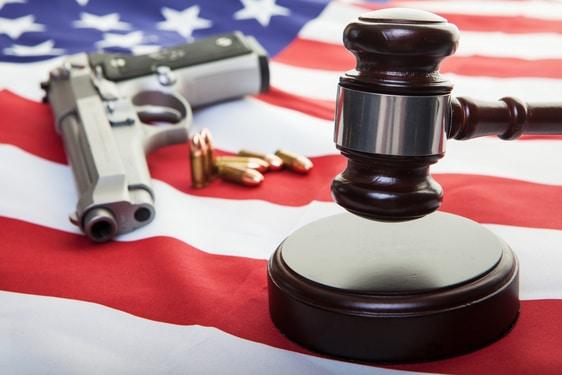
We are swamped with newscasts portraying gunfights and gun killings nearly every day. There have been several debates regarding the Second Amendment’s implication. The major concern is the phrase, “a well-regulated Militia, being necessary to the security of a free State….” Does anything seem overly odd to you in this sentence? It was enacted on 15 December 1971 as a right for self-defense amongst individuals. There have been many cases in which the Supreme Court acknowledged that the Second Amendment is being enforced in the country. This blog post argues for the adequacy of the Second Amendment and against gun control policies.
The Second Amendment to the US Constitution guarantees gun ownership, stating that “the right of the people to keep and bear Arms, shall not be infringed.” It’s important to note that most of the Constitution’s provisions are adverse rights. They are expressed in the form of what the government is not permitted to infringe on, instead of just being affirmative assertions of the rights that Americans have. The debate over gun control involves historians, political scientists, economists, sociologists, government officials, cultural anthropologists, and lawyers, among other disciplines. As such, the freedom to own a gun is a constitutional right that the federal government cannot impede.
The Supreme Court has ruled more in support of the Second Amendment than against it at the federal level. A mandated constitutional right to bear guns in all circumstances, including those that jeopardize national security, might be cause for repeal instead of respect for the amendment. Among the most compelling gun control opponents utilize economic reasons to demonstrate that regulation will not be able to stem the flow of arms into communities where violence is the primary job. Gun control activists, on the other hand, contend from the position of population safety, claiming that although weapons do not provoke violence, they do make it significantly lethal. This may be in the form of mishaps, homicide, and suicide, and it is a public health necessity to ban firearms like all other lethal substances.
Furthermore, the militia was important to the nation’s founders, as seen by the use of the word in the Second Amendment’s provision. Their argument stemmed from how to effectively assure the militia’s continued existence and also how to split the federal and state governments’ tasks. However, both factions were supportive of the idea that all people ought to be part-time warriors, believing that a regular army would pose a direct threat to the republic’s beliefs. The Second Amendment’s single most significant purpose was to prevent the United States from forming a standing military. The founding fathers believed that citizens must be armed, coordinated, and prepared to defend their society to be independent and protected.
Overall, one can make an argument from any perspective. The Second Amendment applied to the militia when it was put in place. It has also been enforced by the Supreme Court over the past several years. Consequently, firearms have always been deeply embedded in American social and political deliberations. I support the gun control opponents’ application of economic reasons to demonstrate that regulation will not be able to curtail the flow of arms into communities where there is sustained violence.
